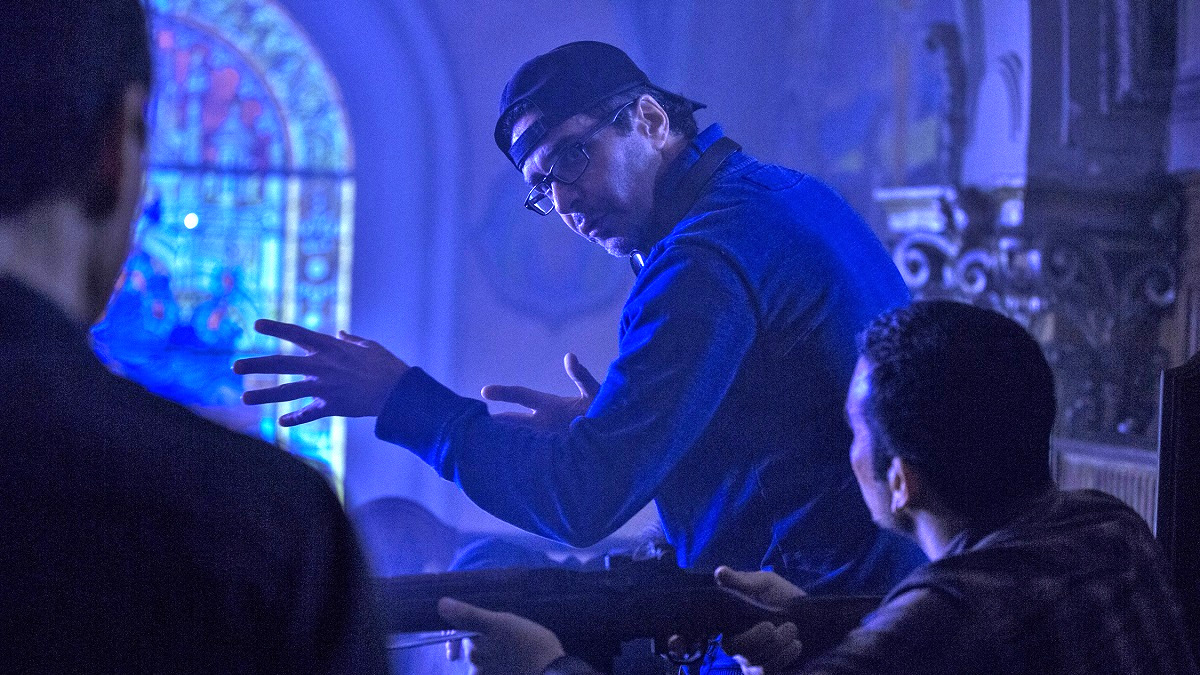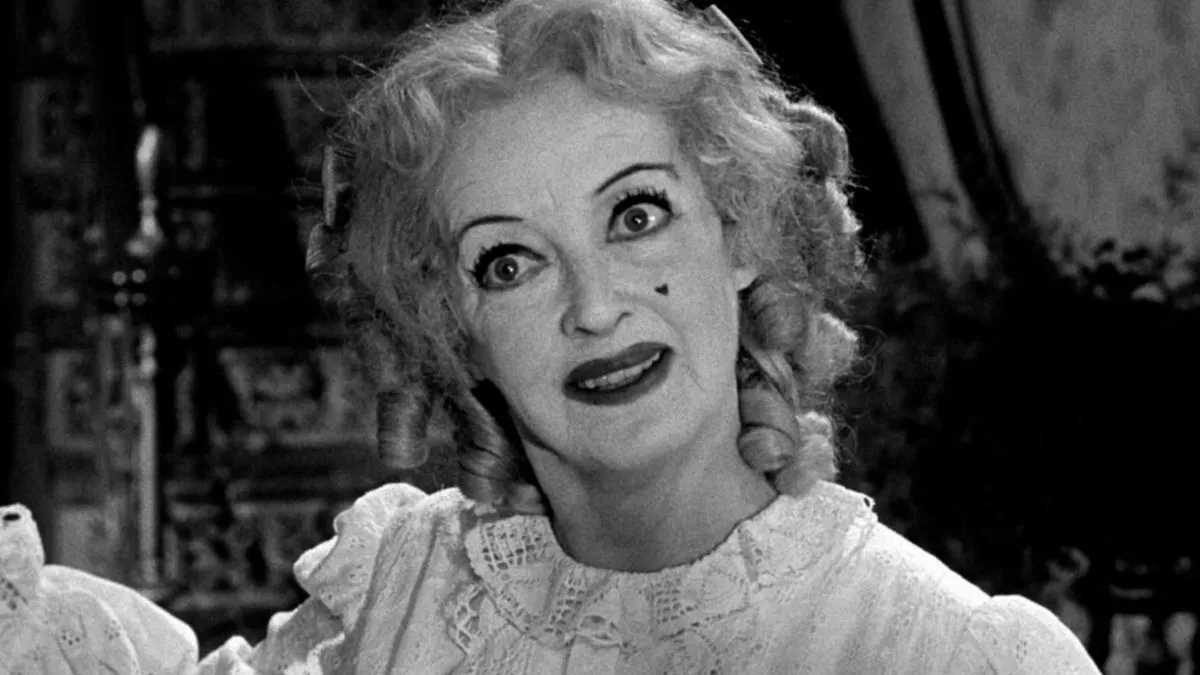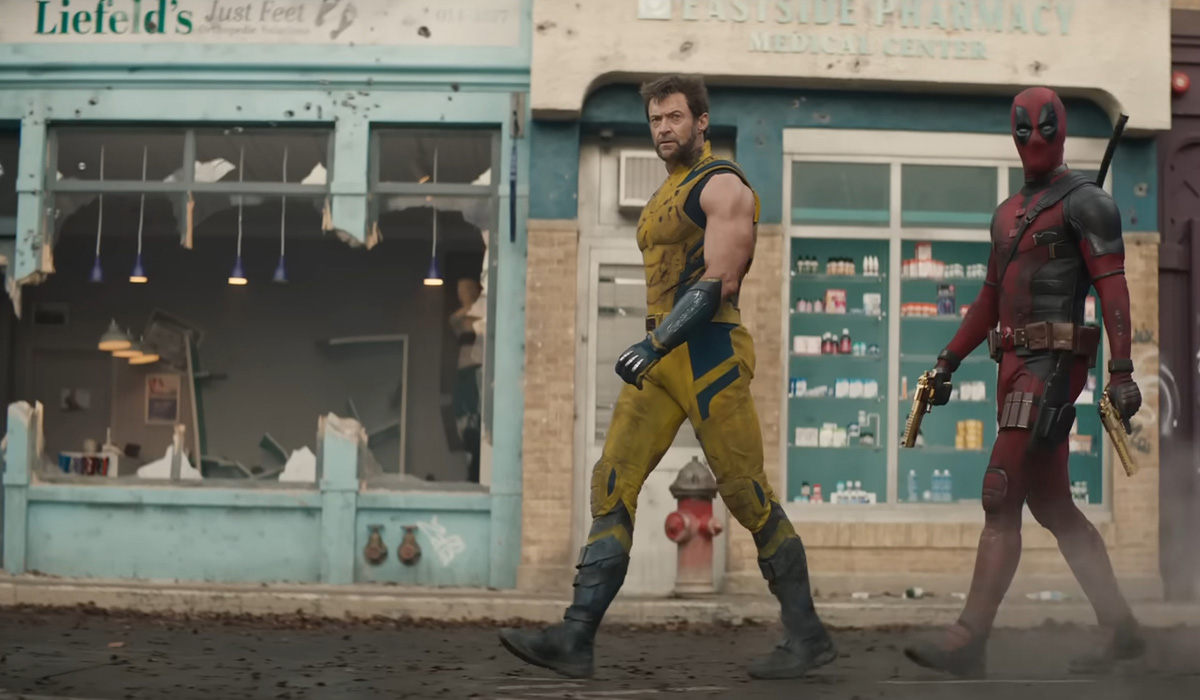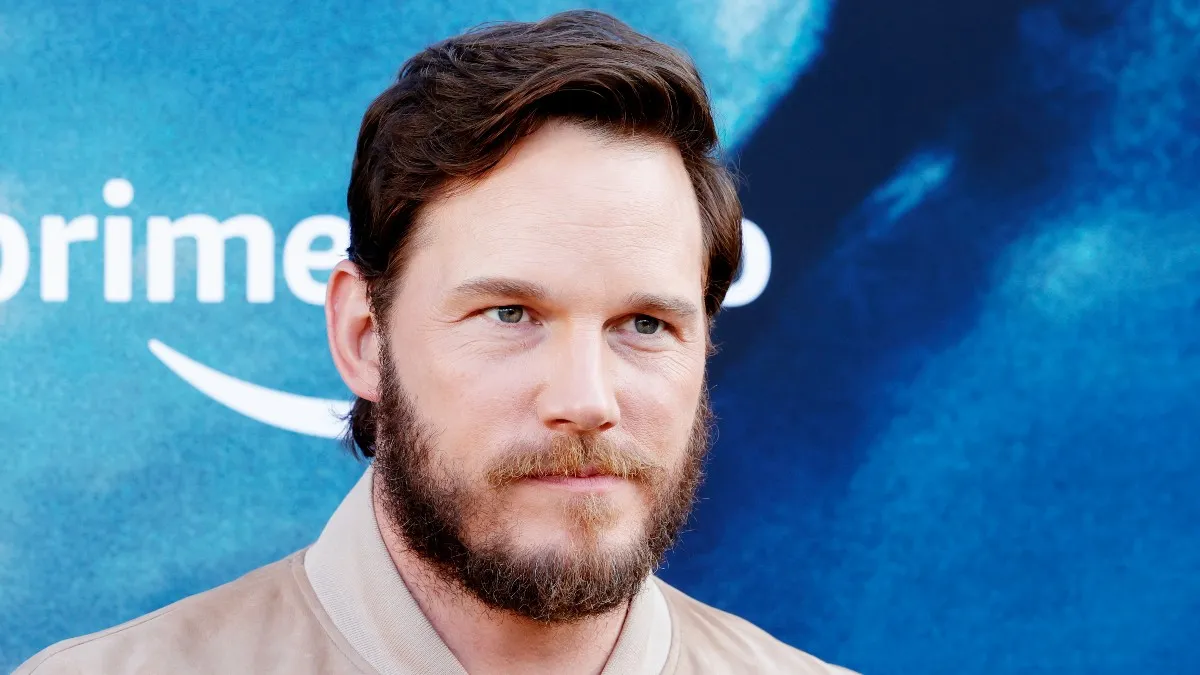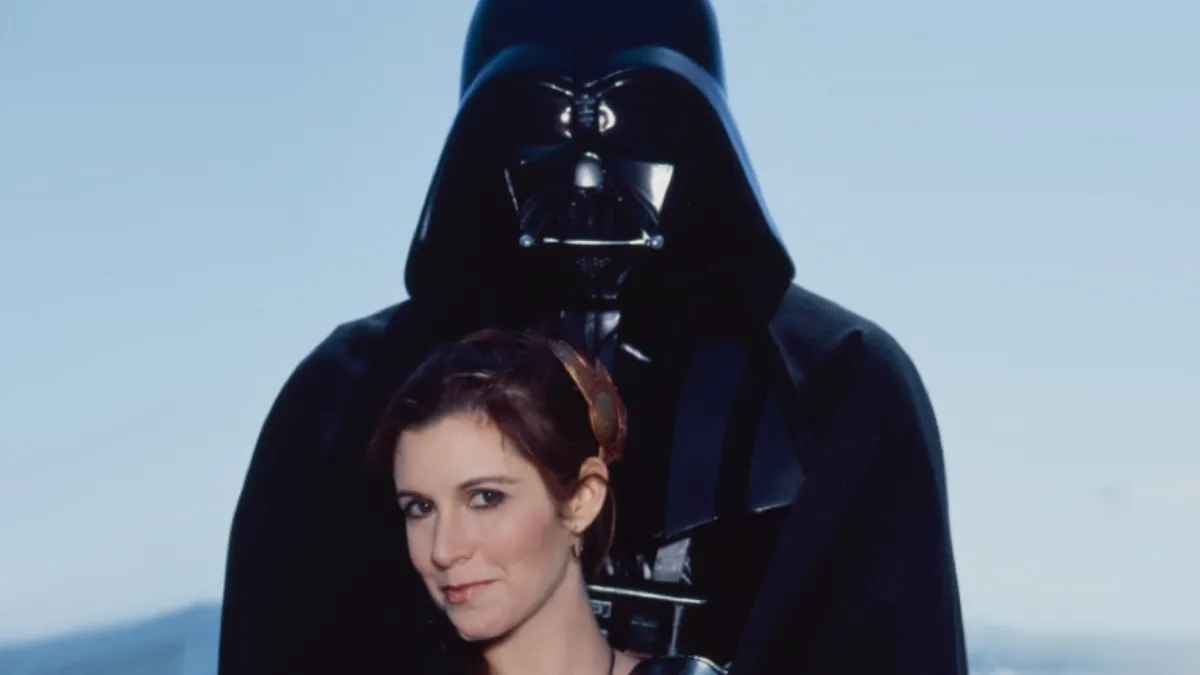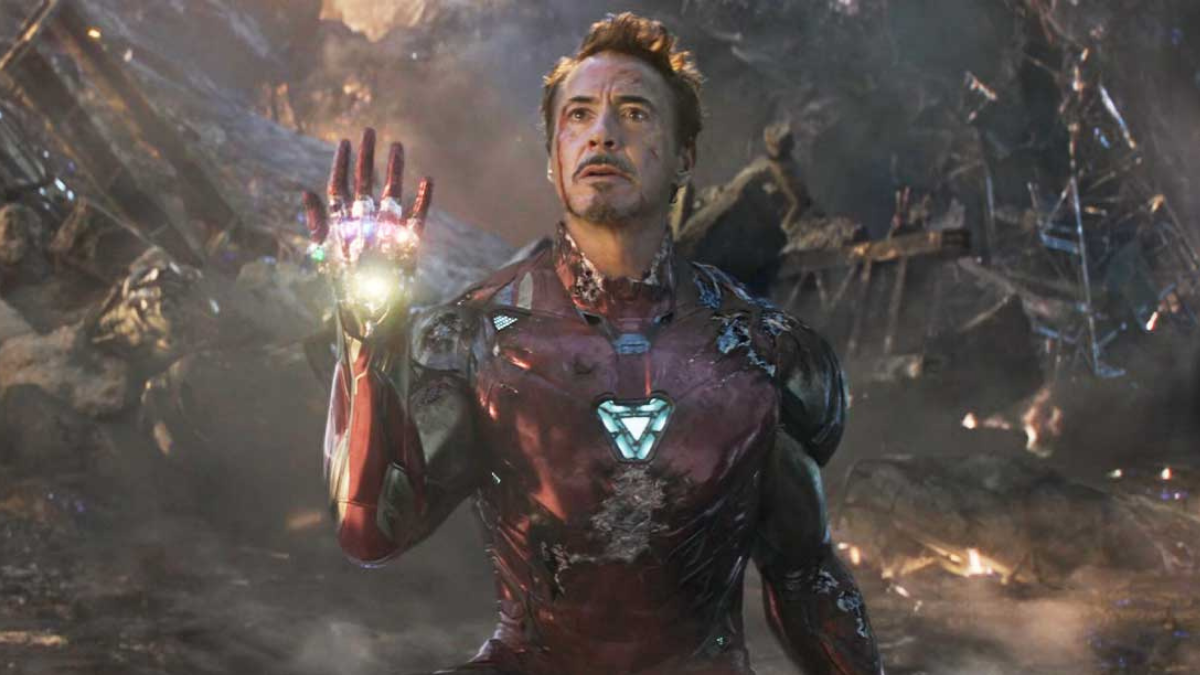If you can believe it, yesterday marked exactly 10 years to the day that The Purge released in theaters. The $2 million hybrid of home invasion thriller and dystopian nightmare would go on to earn almost $90 million at the box office and launch a sprawling franchise that consists of four sequels and a TV series, with a sixth feature-length installment in development.
The mastermind behind it all is James DeMonaco, who wrote the scripts for every single chapter and directed the first three, but he isn’t as happy with the legacy of The Purge as you might expect. The saga has proven to be eerily prescient and reflective of the times we live in, with the filmmaker regularly left less than pleased about how certain subsets of society have interpreted his work.
Nonetheless, any 10-year anniversary is a cause for celebration, and DeMonaco reflected on the past, present, and future of The Purge in an exclusive interview with We Got This Covered. During our deep dive, we cover the origins of the concept, his frustration with just how closely it’s mirrored real-world events, the status update on the sixth film, his upcoming horror with Pete Davidson in the lead role and much more, which you can check out below.
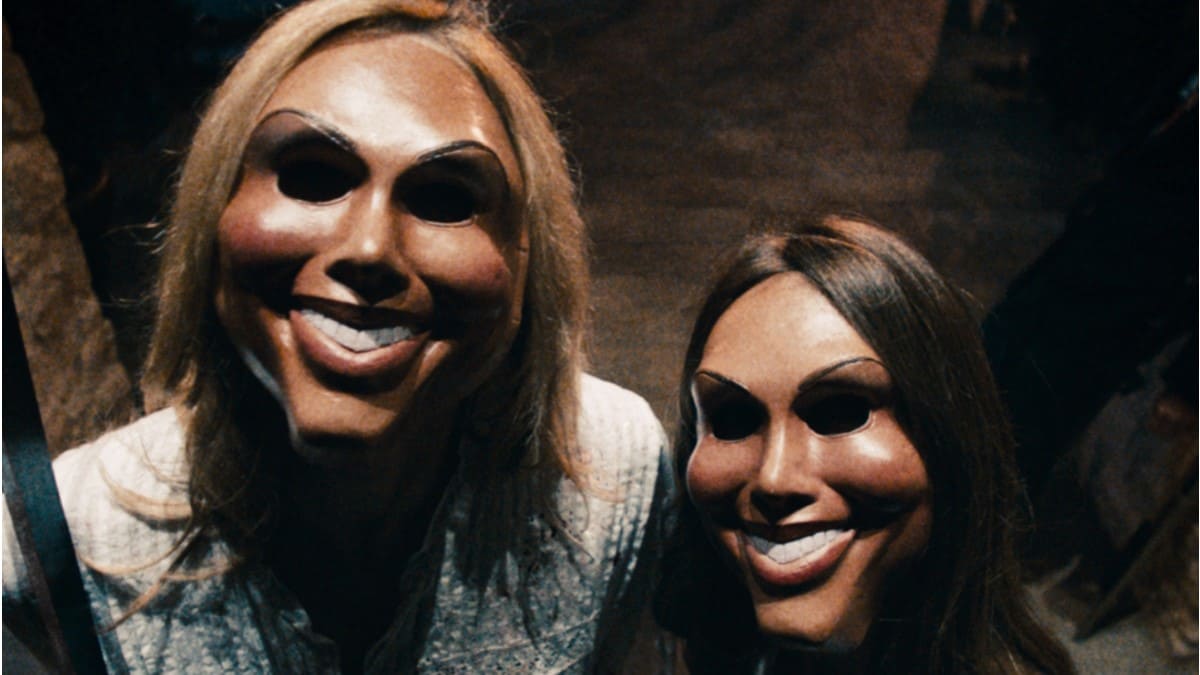
Here we are 10 years, four sequels, one TV show, and $533 million at the box office on from The Purge, so I’d love to know what your reaction would have been a decade ago had somebody told you where this journey would end up leading?
James DeMonaco: I would’ve reacted that they were playing a cruel joke on me, that this was impossible! It was conceived… I had the idea for a long time, way before we made the film, and I actually wrote it at the time I had directed my first film – Staten Island/Little New York – which was a small indie with Ethan Hawke.
And we did some film festivals, and we knew the film I had after that, we wouldn’t be able to get a huge budget. We didn’t have financial success with Staten Island. So I wrote it as this tiny indie. It would, you know, it was an indictment of the American gun culture and the American political system, thinking it wouldn’t really have much play beyond independent theaters, maybe in New York and LA. So, yeah, absolute shock. That’s the god’s honest truth.
Sébastien Lemercier and I – my producer – we were also told by people that it was too anti-American to ever really take off. You know, there were a lot of people who passed on the script; this incredibly dark vision of America. So we did not think anything until Jason Blum saw something bigger in it. We only saw the small indie, the dark half. Jason saw that the concept had a grand appeal. So no, absolute shock.
The only real element of the film that feels dated is that the United States has become virtually crime-free by 2022, with unemployment under 1%, which isn’t bad going for a fantastical movie that released 10 years ago.
James DeMonaco: No, it’s true, you’re right. That is quite, that is dated! We’re not in a place of a crime-free society at all! People always ask me this, “Oh, you’ve predicted the future in so many different ways with the current political division in the country.” And I always say, “Well, it doesn’t make me happy. I wish I was completely bonkers with this idea, and it had no resemblance to modern American society at all!” I wish it was more like Purge 1 where I was completely off with the unemployment rate and the crime, but slowly over the years, it became more and more a reflection of the American political system. So yeah, strange. Strange indeed.
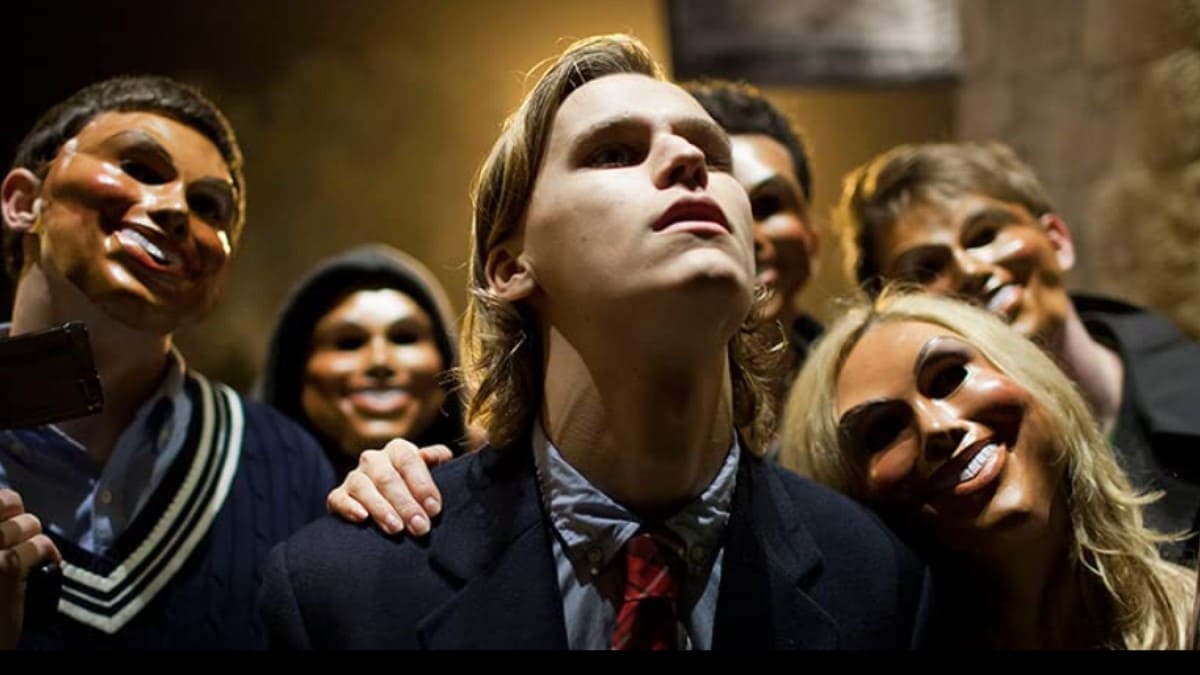
It wasn’t designed to be a timely or prescient franchise – or at least I hope it wasn’t – but the themes and allegories of The Purge have been creeping more and more into society over the last decade, but where does that fall on the divide between irritation and inspiration for you as a filmmaker?
James DeMonaco: Yeah. It leaves me terrified as an American citizen that we are living in such a state of discord, and I don’t know which came first. I mean, listen, I think it was all in the air. I think we just pick up signals from the news, and my writing, I think, is just reflecting probably starting to enter into the DNA of the zeitgeist.
I’m hearing it, I’m feeling it, and I start putting it inside the scripts. But it leaves me just very sad that The Purge keeps resembling this broken… what I look at is a broken society, a broken government, a system that’s no longer truly working in a democratic world. So, yeah. Even Purge 6 which I completed last year. We haven’t shot it yet.
The complete reflection – a hyperbolic reflection – of what the discord in American society. It takes place 10 years after Purge 5, where America is broken completely at the end of Purge 5. And now I take that notion of discord, and I reap America based on ideology, sexuality, and religion. So the states; a very religious state, the LGBTQ states. And oddly, recently, Marjorie Taylor Greene here in America actually, she said that’s what she wishes America would be; to be broken down by ideology and sexuality and religion.
To me, that’s a nightmare. That goes against everything America is. So we’re just in a really scary, I think, place. And yeah, people always say to me, “Isn’t it cool that you predicted this?” I’m like, “No, I wish The Purge was fantasy and had no reflection upon our society in any way, shape, or form!” But I guess – hopefully – that’s what good science fiction does. Maybe it makes us think a little bit, and maybe makes some good changes. Who knows?
It’s a series rooted in fantasy, but for a number of unfortunate reasons we’ve now reached a place as a society where I don’t think anybody would even be surprised in the slightest were The Purge to become a reality, but does that create any conflicting emotions for you given that you’re the mastermind behind it all?
James DeMonaco: Oh yeah. It’s terrifying, man. It’s very scary. I hate that. Listen, I believe the metaphor; the right audience sees. This is what’s so hard about being a filmmaker or any kind of person creating any kind of art, I would say, or book/TV show/movie where something could be misinterpreted from the original intent.
The intent of the piece was something I was writing as a treatise or a reflection of the lack of gun control laws in America. Also, the treatment of the disenfranchised in America. And some people actually look at the The Purge movie, as wish-fulfillment, like they would love to be able to Purge!
But I’d say a good portion of society – it does make me happy – sees the movies for the original intent, which is like I said a moment ago, which is the lack of gun control laws, and the treatment of the disenfranchised, and the current state of political discord. You know, we can’t be worried about interpretation, but yes, it makes me sad that people think that The Purge could be a very natural extension of the current climate, especially after January 6. People thought we actually based Purge 5 on the events of January 6.
We actually shot it a year before January 6, but people thought we actually made it right after, thinking the whole movie was based upon this attempted overthrow of the government by the Trump people, the MAGA people. So yeah, it’s a scary time to see the The Purge brought into into the headlines as a kind of parallel, potential realistic extension of the current anger or politics of grievance that’s going on in America.
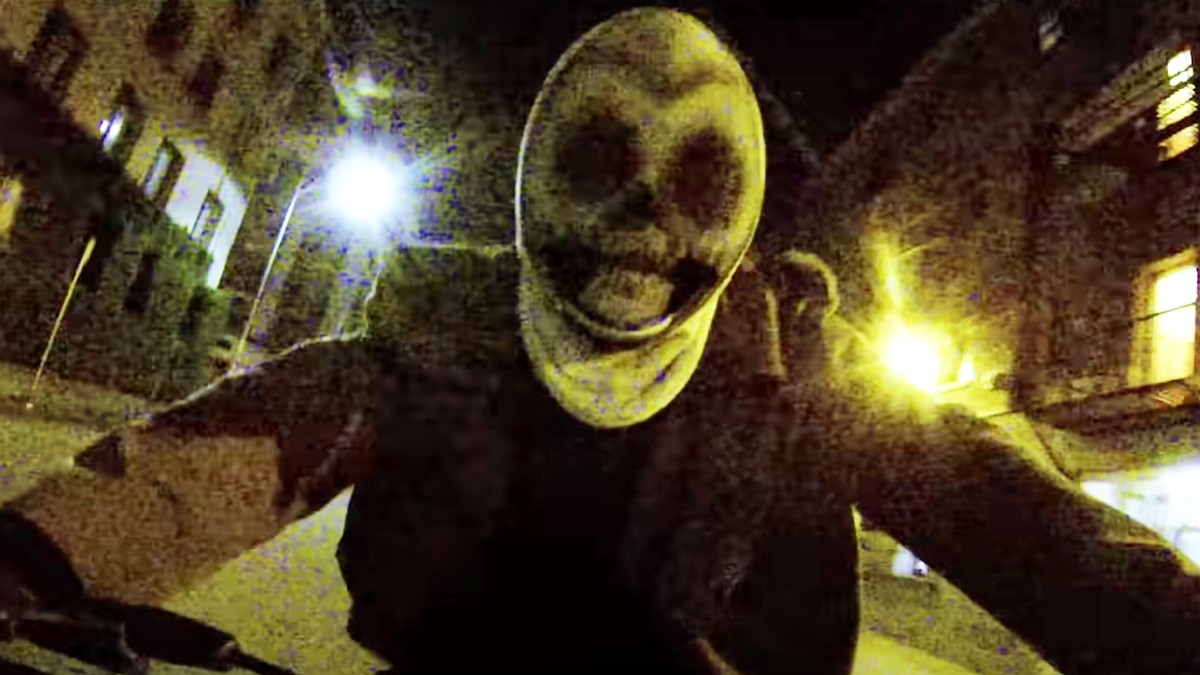
Even your earlier credits like The Negotiator, Assault on Precinct 13, and Staten Island have elements that feed into The Purge, whether it’s corruption in law enforcement, the barriers breaking down in society, or characters that operate outside of the law with impunity, so were the broad strokes of what The Purge eventually became lurking in the back of your mind long before you wrote the script, or was it simply a bout of feverish creativity?
James DeMonaco: No, I think you’re right, man. I think I’m actually obsessed in a way. I’m often obsessed. I sometimes look around, and I’m blown away that anyone abides by any laws and it’s not controlled. Total anarchy in the streets for people doing what they want, when they want.
And I’ve always been, what’s the word, drawn to people’s relationship with the law. People who act, like you said, without regard for law, and then on the flip side of that, people who do follow the law completely. And I think The Purge was a way for me to start exploring, “Well, how does society view laws? What is the higher law? What are we truly governed by? Are we governed by a more religious law, a governmental law? What holds us down to the bounds of society?”
And I think even, like you said, Assault and Negotiator play with the idea of, “Well, who’s gonna push the buttons and not follow these laws anymore?” And even my next script, I just wrote a cop… I’d say, a cop drama or action cop action film about the NYPD, and it explores the same themes about how far society can be pushed before people start rebelling against the government’s laws and take matters into their own hands.
So yeah, I think it was always brewing in my head, about the idea of law enforcement, and how people react to laws in any society. I hope I answered that. I feel like I was off mark there!
Each of the sequels take a different approach to The Purge, but was that something you had planned from the beginning, or was it reflective of where you are and what your thoughts were on the culture at the time you started writing the script?
James DeMonaco: That’s a great question, man. I think it was both. I always knew Anarchy – if I got it – when we were shooting part one, I didn’t think there would be a chance to have a sequel, but jokingly, so we had no idea that it would actually have a box office future. Like I said, I thought it would be a tiny little movie.
But on the set, I knew it was something that told me there would be a portion of the audience that would be quite upset that I was spending the entire first movie inside a house. There was just something in my brain. Now, budgetarily, we had to restrict the shooting to inside one house, just because we just had a $2 million budget.
But I knew in my heart of hearts that even me as an audience member would be like, “Wait? This is a nationwide holiday that has the promise of something larger. The conceit is so large.” It’s lawlessness. On one night in the American landscape, we’re focused on a house. So I knew 2 would have to be, “Let’s hit the city running and show people existing inside a city on Purge Night.” So I knew that. I guess the political overtones, I don’t even guess, I know the political overtones were definitely fueled by the current politics at the time that were starting to emerge.
Again, I spoke to the discord that we saw, especially when Trump entered the political arena and he blew a dog whistle to a part of the American public that was not very political, and he brought them out into the mainstream. And as that began to happen, I think my anger grew at what I saw happening here. And I think I started to infuse anything that I was starting to feel in the current political climate, and that was being put inside the script. Each subsequent script was getting definitely fueled by the current state of politics.
And then my collaborators, especially on 4 and 5, because I directed the first three. But on 4 and 5, we brought in directors to direct what I had written. They were as political, if not even more than me. And I think together we collaborated – especially with Everardo [Valerio Goutaara] on Purge Five – we really pushed, I think, almost some people too far on Purge 5, our political agenda. So, the city was constantly pulling us back on the politics of it all. But yeah, it was definitely fueled by the current state of affairs politically as the series went along.

I am of course obligated to ask about The Purge 6, even though I’ve spoken to both yourself and Frank Grillo about it in the past. Obviously things will be on hold given the writers’ strike, but is that film any closer to hitting the ground running once the issue hopefully resolves itself?
James DeMonaco: I don’t know, being completely honest. I think they like the script over there. I love the script. I think it’s oddly the most fun of the scripts, which is the strangest thing, and it’s the most political and the most fun at the same time. Because I bring back the Frank Grillo character from Purge 2 and 3, and I think people really loved him, and I love working with Frank.
So I was pretty excited. I think the budget is a concern, between you and I. It’s quite a large budget I wrote on 6, and I think that might be causing somewhat of a delay. I think all the studios are starting to weigh budgets as we move forward. And as we both know, the box office isn’t fully back here in America. And I think it’s really making everyone question each and every film that’s being green lit. So, to be quite honest, I don’t know. I don’t know where we’re at.
I’ve been off making another horror film for the last year with Pete Davidson. I’m finishing the film this week, so I don’t know. All honesty. The script is at Universal, they seem to really like it. They didn’t give me many notes. I know budget is a concern, and I’m hoping that after the strike we do hear the good news that maybe we are moving forward. The other thing that happened right before the strike, which I think some fans of The Purge will be happy about, we were discussing revisiting TV. I had kind of an angle on a TV show completely different than what we did before. That might be an interesting way to explore the Purge world one more time. So I’m hoping that also after the writers’ strike we can continue that, too.
Do you have a personal favorite among the five for any reasons, or is that like asking somebody to name their favorite child?
James DeMonaco: No, I think I do actually. Although every time I watch 1, I think 2 came together in a way that… there was something in 2 that worked really nicely I thought, with the balance between propulsive genre action and horror and the political commentary was done metaphorically. It’s not too preachy. I think there’s some proselytizing I do later in the series that might have been a little over the top.
So I think 2 had a nice balance of the political and the genre element. So, yeah, 2 feels right. When I look back upon 2, it’s very funny. I was in the mix yesterday talking about how it’s very hard for me to look at my movies after I’m done. Because all I see is the mistakes. I don’t see the good. But there’s something, when I watch 2, when it’s on cable, I kind of enjoy it. Whereas it’s very hard for me to enjoy my past work in any way, shape, or form. So I would say 2.
Next up is The Home with Pete Davidson. It looks very bloody to say the least, so should audiences be expecting something completely different from what they might be expecting from both you as a filmmaker and him as an actor?
James DeMonaco: Thank you for bringing up The Home. I think so, yes. This is more… I would say this is a departure for me in many ways. I think it enters the psychological horror realm in a way that I’ve always wanted to explore. You know, I’m obsessed with movies like Rosemary’s Baby and The Tenant.
And I think it explores psychological horror in a way that The Purge doesn’t. It does definitely have its propulsive madness, like The Purge, but I think in a little more of a psychological way. And as for Pete, I think people will really be surprised at what a wonderful, dramatic actor Pete is. There’s not an ounce of humor in the film, and I think Pete wholeheartedly dove into this dramatic exercise, and he was wonderful.
I remember saying to him on set, I’m like, “How did you learn to do this?” Because to me, it was a risk. I was on the fence about casting him at first, because there’s no humor in the piece. I’m friends with Pete. We grew up in the same neighborhood, and we got to know each other over the years, just growing up near each other and knowing the same people. And I love his work as a comedian, but as a dramatic actor. I didn’t know. I think there was some hint of it in King of Staten Island, but he was kind playing himself.
Here he is playing a character, not playing himself. Completely dramatic. And he’s wonderful. He’s wonderful in, I think the audience will be really excited. I’m surprised by his journey here as a dramatic actor. Oh, it’s bloody. I will say that. It goes appropriately bonkers and haywire, and hopefully will satisfy fans of the genre completely.
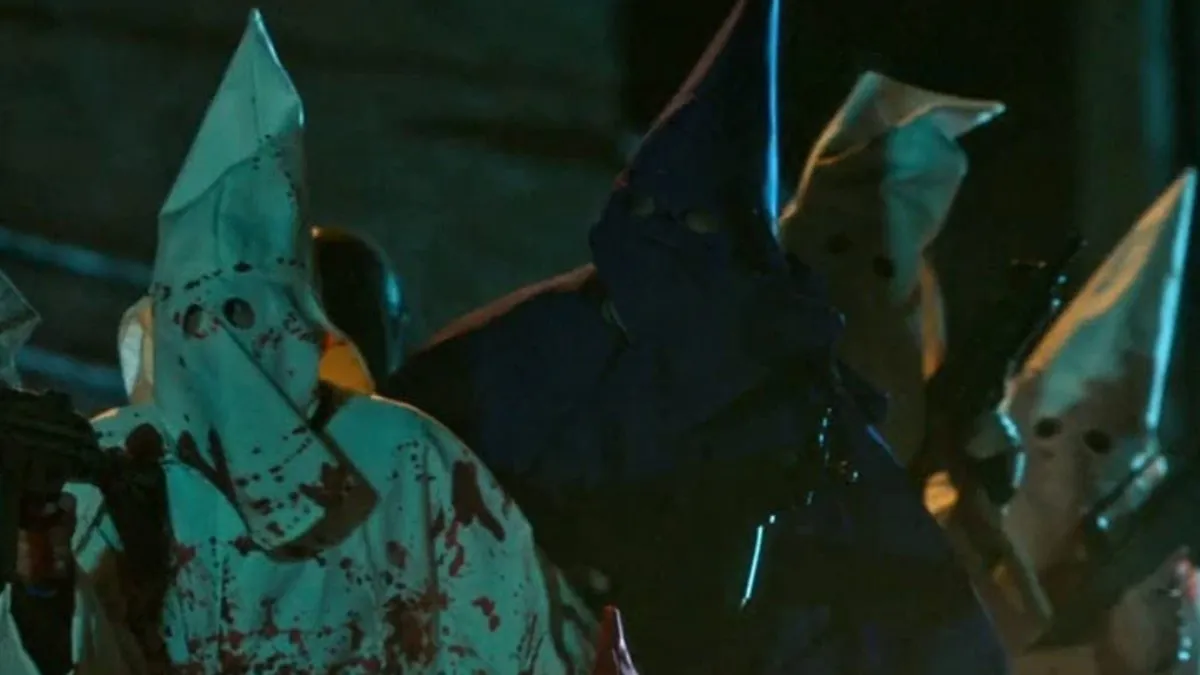
This is the Night was a real change of pace for you in terms of genre, style, and tone, so can we expect more unexpected detours to come in the future?
James DeMonaco: I hope so, man. I hope so. Listen, I love horror. I love action. I love sci-fi. I also, I love dramas. And my next film I think is more of a cop drama. I hope we can get that off the ground. I’ve always admired the career of someone like George Miller, who’s one of my favorite filmmakers.
How we can go from, The Road Warrior to Happy Feet, to Lorenzo’s Oil, to Witches of Eastwick, and doing it all very well, which I find incredible. I love that he’s able to explore the different aspects of his own personality and emotional journey that in a perfect world, I’d love to explore. I even have a very strange love story, I want to tell. It’s got a little strangeness.
If I’m allowed to, if the cinema gods shine down upon my career, I would love to explore different genres, but always returning. I think that in my heart of hearts, I do also deeply love action, horror, and sci-fi. So I think genre is always pulling at me, but I do have these other stories I want to tell. I also love mixing genres, and this is something that’s gotten me in some trouble, is lacking singularity, I think. Sometimes I do like to mix within a movie, and studios don’t really like this.
It’s kind of fun to mix action, horror, sci-fi, love story, whatever that is. And I think mashing up genres is sometimes frowned upon because it’s hard to sell to an audience because they don’t know exactly what they’re coming for. But I like doing that. So I gotta be careful when I move forward to see how I proceed. But I would love to explore other genres, definitely.
If you could make any project of your choosing without restrictions – as in you can make whatever you want however you want and it can cost as much as you want – what would it be and why would it be that?
James DeMonaco: Oh, you mean something existing or something new?
Anything you want it to be.
James DeMonaco: Oh my god. I would love to… I have an epic story about 1950s New York City, about baseball and movies, and I can’t give too much away without giving much, but it’s a film that would dive deeply into the culture of baseball and filmmaking in 1950s New York. It’s very strange. I’m thinking of writing it as a novel, because I don’t see anyone giving me the finances for it!
This epic story of New York in the 50s. That would be about two of my passions, which are baseball – the Yankees – and filmmaking. I have an idea of exploring those two things in our, in my city, the city I love. And I just don’t see the financing coming together, but I will eventually write it as a novel. I know that, and maybe I’ll get lucky one day and someone will give me the money for it. But I think that would be a pet project that I would love to explore.
I look forward to reading the book and waving my copy in everyone’s face telling them I head about it first.
James DeMonaco: Exactly! Yes, indeed. I will write that.
The Home is scheduled for release later this year, while The Purge 6 remains in development.

